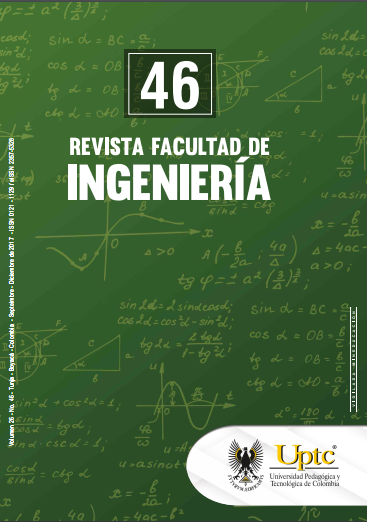Morphological and physicochemical characterization of biochar produced by gasification of selected forestry species

Abstract
In this study, biochar samples acquired as by-product by downdraft gasification at 700 °C from Eucalyptus grandis (BC-EG), Acacia magnium (BC-AM) and Gmelina arborea (BC-GA) were characterized. The morphological characteristics and physicochemical properties of biochar were studied using nitrogen physisorption by the Brunauer-Emmet-Teller (BET) method, Scanning Electron Microscopy (SEM), X-ray Energy Dispersive Spectrometry (EDX) and Fourier Transform Infrared Spectroscopy (FTIR). The surface area (SA) of the materials was in the 2.0-50.0 m2/g range, with the biochar obtained from BC-EG showing the highest SA (50.0 m2/g), while the biochar derived from BC-GA showed the lowest SA (2.0 m2/g). In addition, all samples can be classified as mesoporous materials because their pore sizes were between 2 and 50 nm. This indicates that these materials can be used in absorption processes; however, the biochar obtained from BC-AM is expected to be the most suitable for absorption applications. FTIR biochar spectra did not exhibit characteristic peaks for cellulose or hemicellulose in any sample due to decomposition of these compounds at the gasification temperature. Moreover, according to SEM/EDX analyzes, all the samples presented well-defined pore structure and contained minerals as Na, K and Ca, suggesting that the biochar could also be useful for soil amendment applications.
Keywords
Acacia, Biomass charcoal, Eucalyptus, Forestry products, Forestry species, Gmelina, Physicochemical property
References
- J. Lehmann, and J. Stephen, Biochar for Environmental Management: Science, Technology and Implementation. 2nd Ed. New York: Routledge, 2015. DOI: https://doi.org/10.4324/9780203762264
- H. Kambo, and A. Dutta, “A comparative review of biochar and hydrochar in terms of production, physico-chemical properties and applications,” Renew. Sustainable Energy Rev. vol. 45, pp. 359–378, 2015. DOI: http://doi.org/10.1016/j.rser.2015.01.050. DOI: https://doi.org/10.1016/j.rser.2015.01.050
- Y. Sik, S. Uchimiya, S. Chang, and N. Bolan, Biochar: Production, Characterization and Applications. London: CRC Press, 2016.
- M. Inyang, and E. Dickenson, “The potential role of biochar in the removal of organic and microbial contaminants from potable and reuse water: A review,” Chemosphere, vol. 134, pp. 232-240, 2015. DOI: http://doi.org/10.1016/j.chemosphere.2015.03.072. DOI: https://doi.org/10.1016/j.chemosphere.2015.03.072
- S. Shenbagavalli, and S. Mahimairaja, “Production and characterization of biochar from different biological wastes,” IJPAES, vol 2 (1), pp. 197-201, 2012.
- M. Sukiran, S. Loh, N. Abu, and Y. Choo, “Production and Characterization of Bio-Char from the Pyrolysis of Empty Fruit Bunches,” Am. J. Appl. Sci., vol 8 (10), pp. 984-988, 2011. DOI: http://doi.org/10.3844/ajassp.2011.984.988. DOI: https://doi.org/10.3844/ajassp.2011.984.988
- K. Jindo, H. Mizumoto, Y. Sawada, M. Sanchez-Monedero, and T. Sonoki, “Physical and chemical characterization of biochars derived from different agricultural residues,” Biogeosciences, vol. 11 (23), pp. 6613-662, 2014. DOI: http://doi.org/10.5194/bg-11-6613-2014. DOI: https://doi.org/10.5194/bg-11-6613-2014
- L. Jechan, K. Ki-Hyun, and K. Eilhann, “Biochar as a Catalyst,” Renew. Sustainable Energy Rev., vol. 77, pp. 70-79, 2017. DOI: http://doi.org/10.1016/j.rser.2017.04.002. DOI: https://doi.org/10.1016/j.rser.2017.04.002
- Z. Bouraoui, M. Jeguirim, C. Guizani, L. Limousy, C. Dupont, and R. Gadiou, “Thermogravimetric study on the influence of structural, textural and chemical properties of biomass chars on CO2 gasification reactivity,” Energy, vol. 88, pp. 703-710, 2015. DOI: http://doi.org/10.1016/j.energy.2015.05.100. DOI: https://doi.org/10.1016/j.energy.2015.05.100
- W. Ghani, A. Mohd, G. da Silva, R. Bachmann, Y. Taufiq-Yap, U. Rashid, and A. Al-Muhtaseb, “Biochar production from waste rubber-wood-sawdust and its potential use in C sequestration: Chemical and physical characterization,” Ind. Crop Prod., vol. 44, pp. 18-24, 2013. DOI: http://doi.org/10.1016/j.indcrop.2012.10.017. DOI: https://doi.org/10.1016/j.indcrop.2012.10.017
- K. Kim, J. Kim, T. Cho, and J. Choi, “Influence of pyrolysis temperature on physicochemical properties of biochar obtained from the fast pyrolysis of pitch pine (Pinus rigida),” Bioresource Technol., vol. 118, pp. 158-162, 2012. DOI: http://doi.org/10.1016/j.biortech.2012.04.094. DOI: https://doi.org/10.1016/j.biortech.2012.04.094
- R. Azargohar, S. Nanda, J. Kozinski, A. Dalai, and R. Sutarto, “Effects of temperature on the physicochemical characteristics of fast pyrolysis bio-chars derived from Canadian waste biomass”, Fuel, vol. 125, pp. 90-100, 2014. DOI: http://doi.org/10.1016/j.fuel.2014.01.083. DOI: https://doi.org/10.1016/j.fuel.2014.01.083
- S. Shaaban, M. Se, M. Dimin, J. Juoi, M. Mohd, and N. Mitan, “Influence of heating temperature and holding time on biochars derived from rubber wood sawdust via slow pyrolysis”, J. Anal. App.l Pyrol., vol 107, pp. 31-39, 2014. DOI: http://doi.org/10.1016/j.jaap.2014.01.021. DOI: https://doi.org/10.1016/j.jaap.2014.01.021
- C. Brewer, K. Schmidt-Rohr, J. Satrio, and R. Brown, “Characterization of biochar from fast pyrolysis and gasification systems,” Environ. Prog. Sustain. Energy, vol. 28 (3), pp. 386-396, 2009. DOI: http://doi.org/10.1002/ep.10378. DOI: https://doi.org/10.1002/ep.10378
- L. Luo, C. Xu, Z. Chen, and S. Zhang, “Properties of biomass-derived biochars: Combined effects of operating conditions and biomass types,” Bioresource Technol., vol. 192, pp. 83-89, 2015. DOI: http://doi.org/10.1016/j.biortech.2015.05.054. DOI: https://doi.org/10.1016/j.biortech.2015.05.054
- K. Qian, A. Kumar, K. Patil, D. Bellmer, D. Wang, W. Yuan, and R. Huhnke, “Effects of biomass feedstocks and gasification conditions on the physiochemical properties of char,” Energies, vol. 6 (8), pp. 3972-3986, 2013. DOI: http://doi.org/10.3390/en6083972. DOI: https://doi.org/10.3390/en6083972
- Y. Lenis, L. Osorio, and J. Pérez, “Fixed Bed Gasification of Wood Species with Potential as Energy Crops in Colombia: The Effect of the Physicochemical Properties,” Energ. Source Part A, vol. 35 (17), pp.1608-1617, 2013. DOI: http://doi.org/10.1080/15567036.2012.704486. DOI: https://doi.org/10.1080/15567036.2012.704486
- B. Rivka, D. Laird, M. Thompson, and M. Lawrinenko, “Characterization and quantification of biochar alkalinity,” Chemosphere, vol. 167, pp. 367-373, 2017. DOI: http://doi.org/10.1016/j.chemosphere.2016.09.151. DOI: https://doi.org/10.1016/j.chemosphere.2016.09.151
- M. Jouiad, N. Al-Nofeli, N. Khalifa, F. Benyettou, and L. Yousef, “Characteristics of slow pyrolysis biochars produced from rhodes grass and fronds of edible date palm,” J. Anal. Appl. Pyrol., vol. 111, pp. 183-190, 2015. DOI: http://doi.org/10.1016/j.jaap.2014.10.024. DOI: https://doi.org/10.1016/j.jaap.2014.10.024